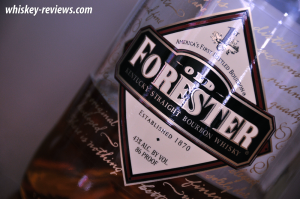Well, not really. Depending on who you’re talking to, the most beloved drink in the world has two different spellings.
Take a look at the bottles you have in your own collection, or at the bar you frequent. Depending on the origin of those bottles, whiskey may be spelled with or without the “e”. For instance, take my review on Benchmark. This “Kentucky Straight Bourbon Whiskey” retains that “e” toward the end. In fact, most American whiskeys do. And for some odd reason Irish whiskeys follow this trend as well.
Then there are the regions preferring the “whisky” spelling. Scotch typically utilizes this spelling, as do the Canadian and Japanese varieties.
But, for every rule (no matter the strange reasons for which it exists) there are exceptions. Old Forester, for example, is a bourbon, but uses the “whisky” spelling. Coincidentally, the original name was “Old Forrester”, so the good folks at Brown-Forman know a thing or two about adding or omitting letters – just kidding guys!
The thing that makes whiskey, or whisky, so captivating to me is overall diversity. Not just when it comes to flavor profiles, but to perspectives and philosophies. While some purists will only allow the finest single malts onto their palate, I find it much more interesting to keep an open mind and try anything I can get my hands on.
Whiskey is whisky is whisk-ee. Can’t we just all get along and agree that whatever we call this spirit, it’s the best in the world?
-Ryan


1 pings
[…] packaging is average, and so on and so forth. It’s a Brown-Forman product (as I stated in a previous blog post), sharing its roots with Jack Daniel’s and Woodford […]